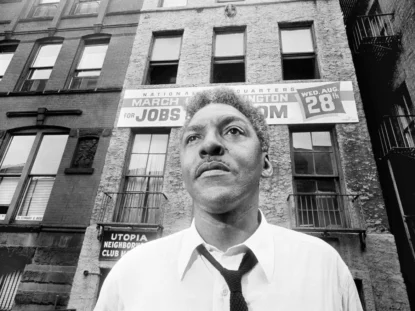In 1963, an Estonian war hero, family man and chairman of a Soviet collective farm was arrested on suspicion of homosexuality. He escaped court conviction, thanks to his solid Communist Party position, but he was summarily fired and expelled from the party, and his marriage was dissolved. He was soon arrested again on the same charge, and this time, powerless, he was sentenced to a year and half of hard labor. A broken ex-con, he spent the 1970s and 1980s living quietly and cruising heavily in Tartu, Estonia’s second biggest city. In 1991 — the very year Estonia finally reclaimed formal independence from the Soviet Union — he was found murdered in his home, allegedly by a male prostitute.
Now, a quarter century later, the chairman’s tragic story fittingly serves as the inspiration for a bold art exhibition at Estonia’s Museum of Occupations in Tallinn, a sober but fascinating memorial to the country’s years under Soviet (and briefly Nazi) subjugation from 1940 to 1991.
Read the full article here.








